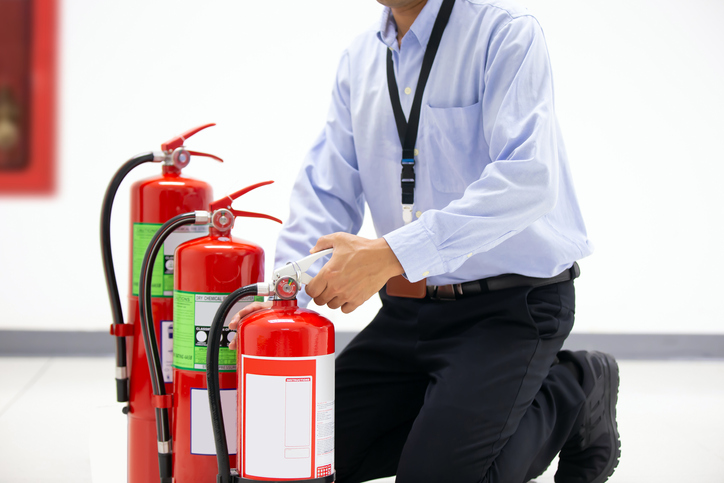Heads up! There are new fire drill requirements effective 7/1/21. They apply to organizations accredited under the Behavioral Health Care and Human Services standards. The changes better align TJC standards with National Fire Protection Association (NFPA) Life Safety Code requirements for residential board and care occupancies.
New Joint Commission Fire Drill Requirements: Health Care Occupancies
The new requirement is in standard EC.02.03.03 Element of Performance # 1. Specifically, it requires facilities that are health care occupancies to conduct fire drills once per shift per quarter. TJC considers a facility a health care occupancy if it utilizes door locking to prohibit individuals from leaving the building.
EC.02.03.03 EP 1:
“The organization conducts fire drills once per shift per quarter in each building defined as a health care occupancy by the Life Safety Code. (See also LS.01.02.01, EP 11)
Note 1: Evacuation of individuals served during drills is not required.
Note 2: When drills are conducted between 9:00 P.M. and 6:00 A.M., the organization may use alternative methods to notify staff instead of activating audible alarms.
Note 3: In leased or rented facilities, drills need be conducted only in areas of the building that the organization occupies.
Note 4: Behavioral health care facilities are considered health care occupancies if door locking is utilized to prohibit individuals served from leaving the building or spaces in the building.”
New Joint Commission Fire Drill Requirements: Residential Board and Care Facilities
For residential board and care facilities, TJC now requires bimonthly fire drills. They define bimonthly as no less than six times per year. TJC considers a facility a residential board and care occupancy if it does not utilize door locking to prohibit individuals from leaving the building.
EC.02.03.03 EP 6:
“The organization conducts bimonthly (not less than six times per year) fire drills in each building designed as a residential board and care facility, with at least two annual drills conducted during the night when individuals served are sleeping. These drills include actual evacuation of all residents unless otherwise permitted by NFPA 101-2012:32/33.7.3.
Note: Behavioral health care facilities are considered residential board and care occupancies if door locking other than permitted delayed-egress and access-controlled egress locks is not utilized to prohibit individuals served from leaving the building or spaces in the building.”
Important: Vary Your Fire Drills
Remember: TJC requires your quarterly fire drills to be unannounced. In addition, they require you to hold the drills at “unexpected times and under varying conditions.” (See EC.02.03.03 EP 3.)
For example, drills shouldn’t always take place on Wednesdays between 10:00 and 11:00 a.m. Clearly, that takes away the element of surprise. Most importantly, it doesn’t keep folks on their toes in terms of responding to fire drills.
Specifically, TJC requires that fire drills vary by at least one hour from quarter to quarter for each shift. They discuss this topic in their blog post Top Four Life Safety Code Requirements Debunked.
TJC also has a Fire Drill Matrix Tool for hospitals. You can easily adapt it to your behavioral health care setting. They discuss the tool and how to use it in their Joint Commission Podcast Take Five: Fire Drill Matrix Tool.
Barrins & Associates Consultation
TJC is getting back to “business as usual.” Likewise, we’re very busy conducting Mock Surveys and Continuous Readiness Consultations. We’ve incorporated all the new 2021 standards and surveyor tools. As always, we’re prepared to support your ongoing survey readiness and regulatory compliance.


